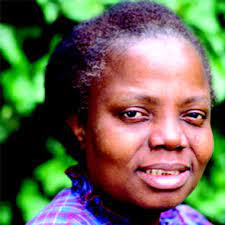Introduction
Florence Onyebuchi "Buchi" Emecheta OBE was a Nigerian-born novelist, based in the UK from 1962, who also wrote plays and an autobiography, as well as works for children. She was the author of more than 20 books, including Second Class Citizen, The Bride Price, The Slave Girl, and The Joys of Motherhood.
The Joys of Motherhood is a novel written by Buchi Emecheta. It was first published in London, UK, by Allison & Busby in 1979 and was reprinted in Heinemann's African Writers Series in 2008. The basis of the novel is the "necessity for a woman to be fertile, and above all to give birth to sons".
1. Double Colonization of women
“There was far more to be gained by communication” (p. 63). By description, unity of action and blackness, in The Joys of Motherhood, demystify the common context of struggle among women of color in Igbo society. The constructed solidarity, in this regard, unifies them against the power structures, as Mohanty (2003) discusses in her theory. When Nnaife leaves for Ferdinando Po, Nnu Ego, who is pregnant, and her son, Oshie, live in poverty which is reinforced due to the economic pressure. “Oshie [is] lucky if he had a good meal a day”. (p. 103)
He is gradually diagnosed to be ill. In this situation, we are told that “everybody gave [Nnu Ego] what they could and the greatest help was that the landlord told her to disregard paying rent for that month” (p. 106). This depiction, indeed, asserts the existence of solidarity not only among women but among all black people. The idea explores the fact that black men and women should struggle against racism side by side. Maybe, this extract justifies Emecheta as a black feminist and womanist because […] forerunners of Black Feminism…stimulate black women to love themselves, their race, and their culture and not to trap in white superiority or white beauty standards.
In the novel, Emecheta carefully depicts how the colonial discourse brings about changes such as religious ones in Lagos through the institutions: “the workers are determined to be off only half a day in the week and that is on Sundays to attend the church. The marriage should be done in the church, otherwise; it is regarded as an illegal marriage. When Nnu
Ego is pregnant for the first time, Naif becomes worried that he may lose his job because they didn’t marry in the church. Moreover, Nnu Ego, in the court, is told to swear by the Holy Bible, not by her chi”. (Emecheta, 2011, p. 217) Hence, Emecheta highlights how carefully the West develops its culture and rules through the institutions.
She, indeed, echoes how women are subject to multiple oppressions by the intersection of oppressive forces of race, gender, and class. Emecheta, in this regard, attempts to speak for the disenfranchised African women who are subjugated by the colonial patriarchal society. Due to their own contradictory sex, race, class, and cast positioning, Third World women and women of color are subject to domination and exploitation (Mohanty, 2003, p. 64).
Through disclosing the abusive behaviors with which the colonial patriarchal society has oppressed and silenced the female figures in Lagos, Emecheta criticizes the effects the colonial patriarchal discourse has on the native patriarchy. In this regard, Loomba (2007) mentions:
Colonialism intensified patriarchal oppression, often because native men increasingly disenfranchised and excluded from the public sphere, became more tyrannical at home in her story, Emecheta questions such capitalist policy which leads to the immigration of many villagers, with no profession, to Lagos- a colonized city- to find a job: It was difficult for a man with no qualification to find work in early 1940. In growing numbers, they were leaving their village homes to look for jobs in Lagos, and this phenomenon was robbing many areas of their most able-bodied men. (Emecheta, 2011, p. 141)Indeed, Emecheta attempts to explore that women of color, however different, acknowledge that solidarity is the only way that constitutes their commonality within the power structures.
Thanks😊



No comments:
Post a Comment